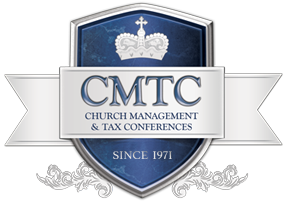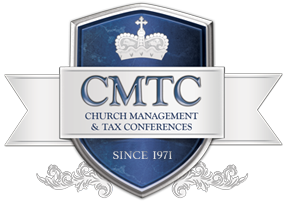Minister Johnson approached me during a recent Church Management and Tax Conference, concerned because her Church was not in the registry even though she had a letter of determination. Upon further review it was determined that her Church had misfiled its 1023 and as such was subject to 990 filing requirements. Since 990’s had not been filed, their ministry’s 501 (c) (3) was revoked.
So often those in ministry mistakenly think that all they need is a 501 (c) (3), and do not realize that there are several ways to be classified for tax purposes. Some have no clue as to the difference between Church classification and that of religious non-profit ministry classification. There is a tremendous difference between the two.
What Qualifies As A Church
Some of the confusion over churches arises when the Internal Revenue Service differentiates between religious institutions like churches, and religious organizations. The IRS issued the following with regard to religious organizations, “Religious organizations that are not churches typically include nondenominational ministries, interdenominational and ecumenical organizations, and other entities whose principal purpose is the study or advancement of religion.”
To clarify the federal government’s definitions of a church and other religious institutions, the Internal Revenue Service uses clearly-defined guidelines. However, due to various court decisions, the IRS has revised this list. Some of the IRS guidelines used to determine if an entity is a Church are:
- A distinct legal existence and religious history
- A recognized creed and form of worship
- Established places of worship
- A regular congregation and regular religious services, and
- An organization of ordained ministers
The above list is not exhaustive. For further information, it is vital that every Pastor and Church Leader in the United States attend the nearest Church Management and Tax Conference. To register, call 800-344-0076 or visit www.cmtc.org.
It is not a requirement that a Church meet all of the established IRS guidelines as to what constitutes a Church. Although the IRS is to some degree flexible, the entity should meet most of the guidelines if they desire Church and non-profit status.
Dangers for Misqualification
Please understand that just because you call yourself a Church, does not mean you are one. If a Church or non-profit is not properly qualified as such, the repercussions could be devastating. If there is an audit of anyone who has donated money and claimed a tax deduction, the organization to which the money was donated may have to prove their tax-exempt status and their right to receive tax-deductable donations. In the case of Jack Lane Taylor v. The Commissioner, a Federal Tax Court made the following ruling in disallowing Mr. Taylor’s donations:
Deductions are a matter of legislative grace and taxpayers must satisfy the specific requirements of the deductions they claim. See New Colonial Ice Co. v. Helvering, 292 U.S. 435 (1934). Taxpayers bear the burden of proving their entitlement to the deductions they claim. See Rule 142(a); INDOPCO, Inc. v. Commissioner, 503 U.S. 79, 84 (1992); Welch v. Helvering, 290 U.S. 111 (1933); Davis v. Commissioner, 81 T.C. 806, 815 (1983), affd. without published opinion 767 F.2d 931 (9th Cir. 1985). /3/ These rules apply with equal force to deductions claimed for charitable contributions. See Davis v. Commissioner, supra.
Petitioner concedes that during the year in issue IBT was not an organization defined in section 501(c)(3) and, by implication, we understand him not to assert that IBT is an organization defined in section 170(c)(2). Rather, petitioner contends that his donations to IBT are deductible because IBT is not a “corporation”, but a “church”. As a church, petitioner contends, IBT is exempt from having to meet the requirements of section 170(c)(2). He relies on section 508(c)(1) for support for his position.
Section 508(c)(1)(A) provides that churches, their integrated auxiliaries, and conventions or associations of churches are excepted from the general rule of section 508(a). Section 508(a) provides that organizations described in section 501(c)(3) and organized after October 9, 1969, are required to apply formally for recognition of their tax-exempt status. Thus, section 508(c)(1) simply relieves churches from applying for a favorable determination letter regarding their exempt status as required by section 508(a). Nothing in section 508(c)(1) relieves a church from having to meet the requirements of section 501(c)(3). In fact, it is clear that when the Commissioner determines that an organization is not entitled to an exemption as a church, as is the case for IBT, its contributors must prove the church’s right to an exemption under section 501(c)(3) in order to be entitled to a deduction for their contributions.
Choose the Best Legal Setup for Your Ministry
Churches are not required to file 990’s if their Letter of Determination so specifies. However, other non-profits are required to file this annual form and penalties for failure to comply can result in fines of $20.00 per day. Failure to file for 3 years will also revoke the ministry’s tax-exempt status.
Pastors should establish their own 501 (c) (3) ministry apart from the Church. Thanks to Ms Lois Lerner, 501 (c) (3)s are not handed out quite as easily as in times past. Get yours today while it is available.
Determine your ministry’s best “fit.” If you consider your ministry as a Church, make sure it fits most of the guidelines established by the Internal Revenue Service. If not, you need to comply or re-classify.
This is where we can help. Chitwood and Chitwood is the Premier Church and Clergy Assistance organization in the world. For more than 77 years we have made sure that Churches, Pastors, Ministers, and Leaders have been protected from violating IRS regulations. This is what we do. For us it is not a job, but a Ministry.
Make sure your Church and Ministry are properly classified by attending the nearest Church Management and Tax Conference. Call 800-344-0076 or visit us on the web at www.cmtc.org. Let us put you at ease so you can do what you were called to do – preach and minister.

